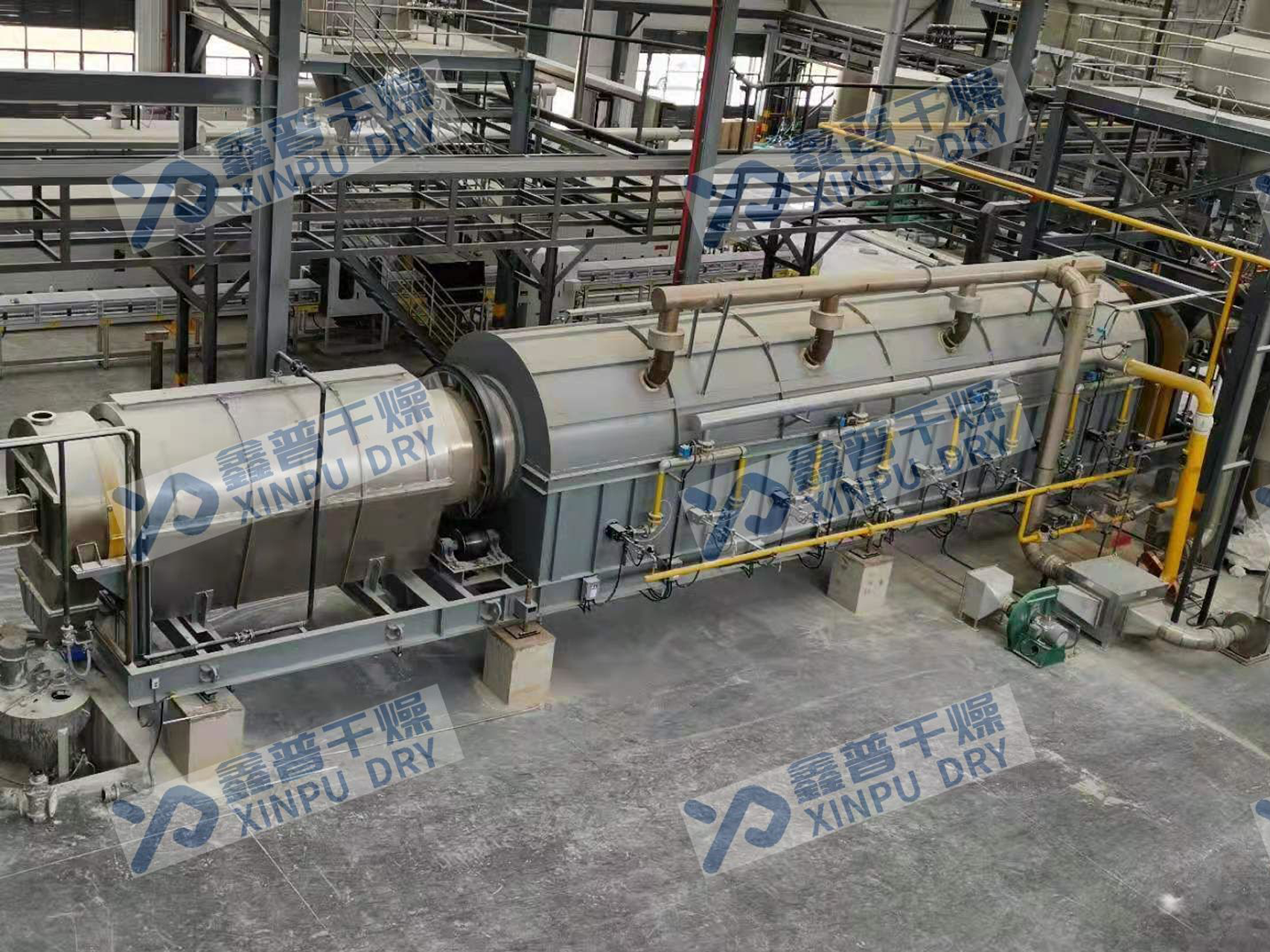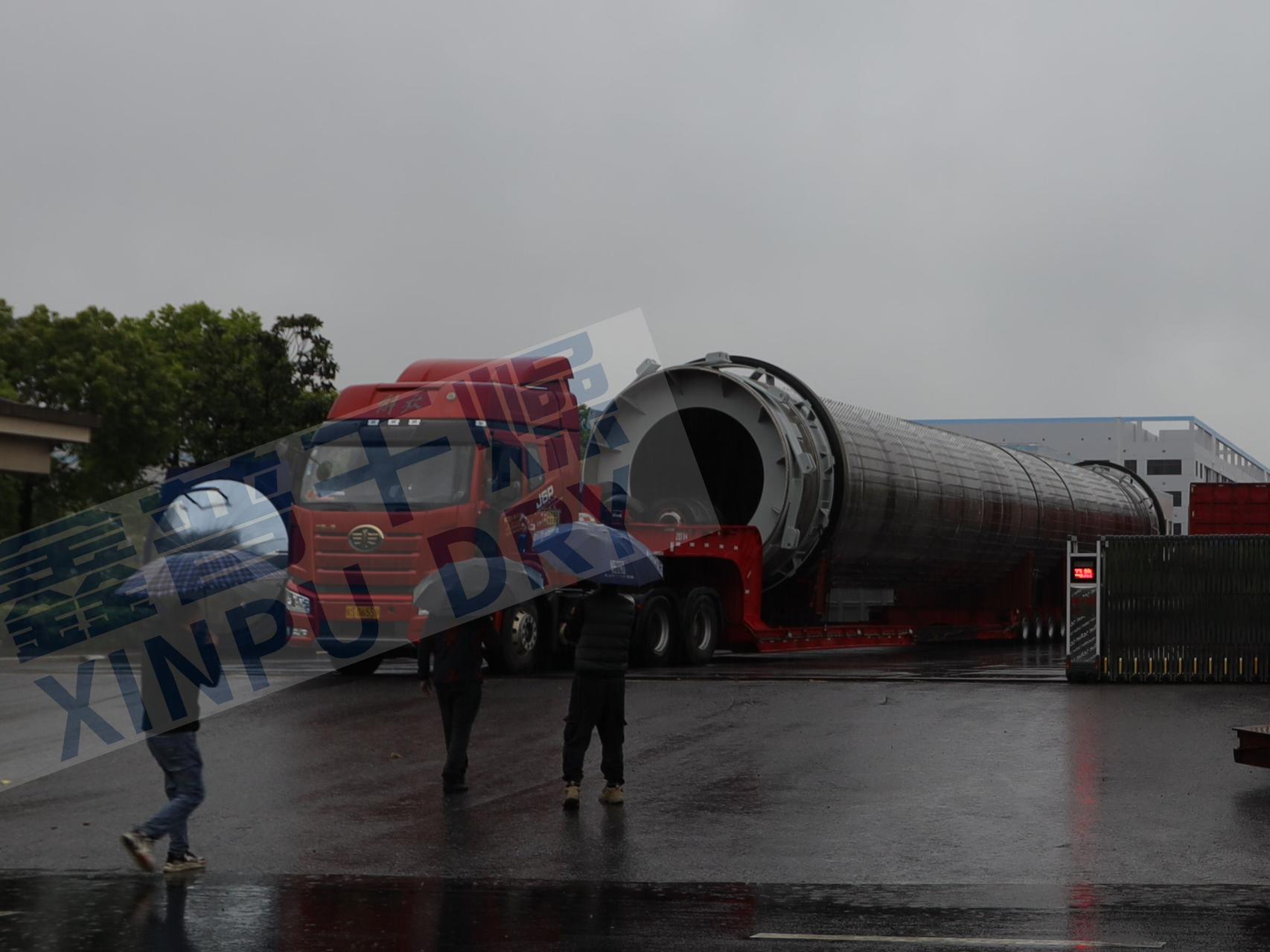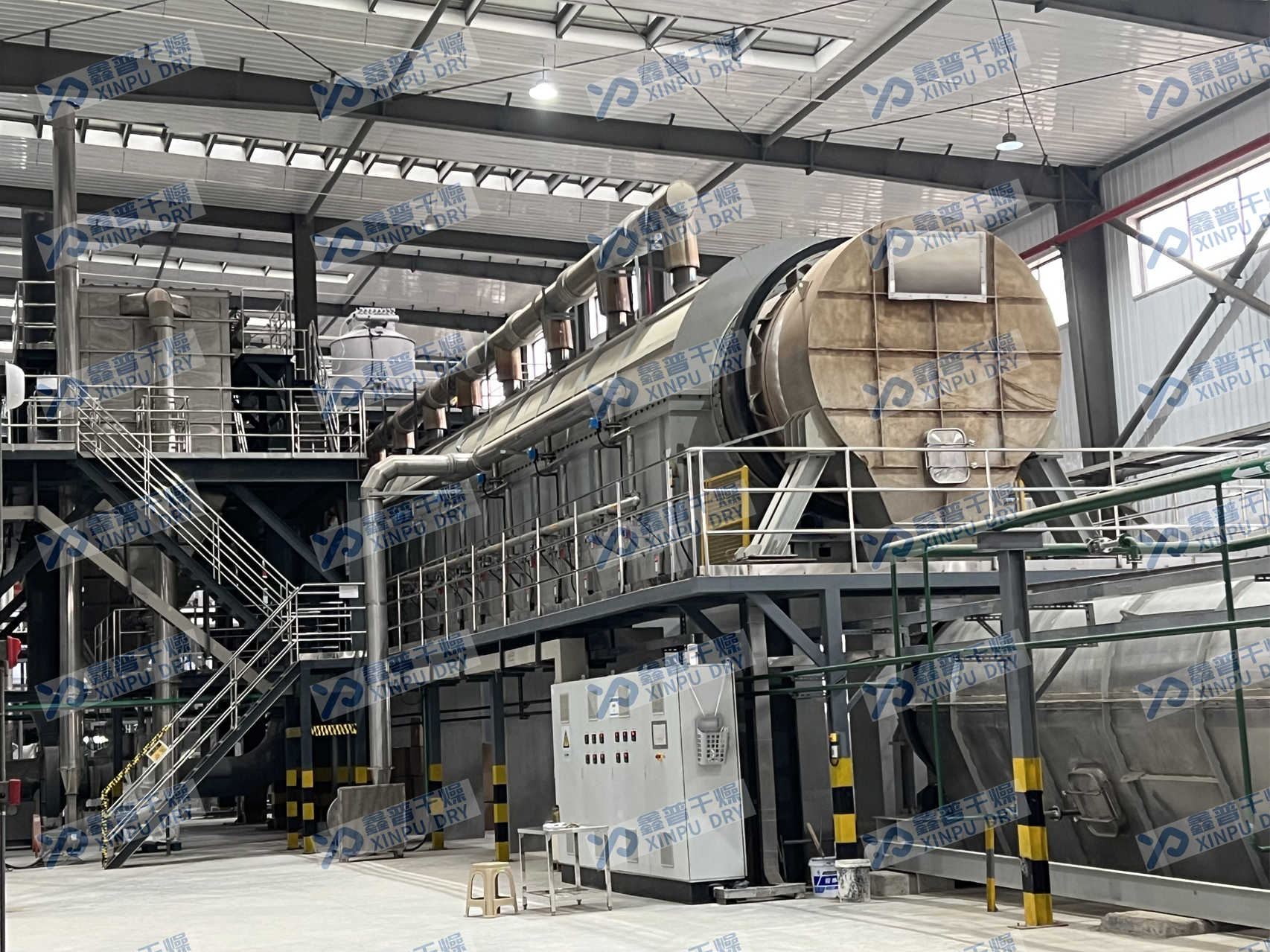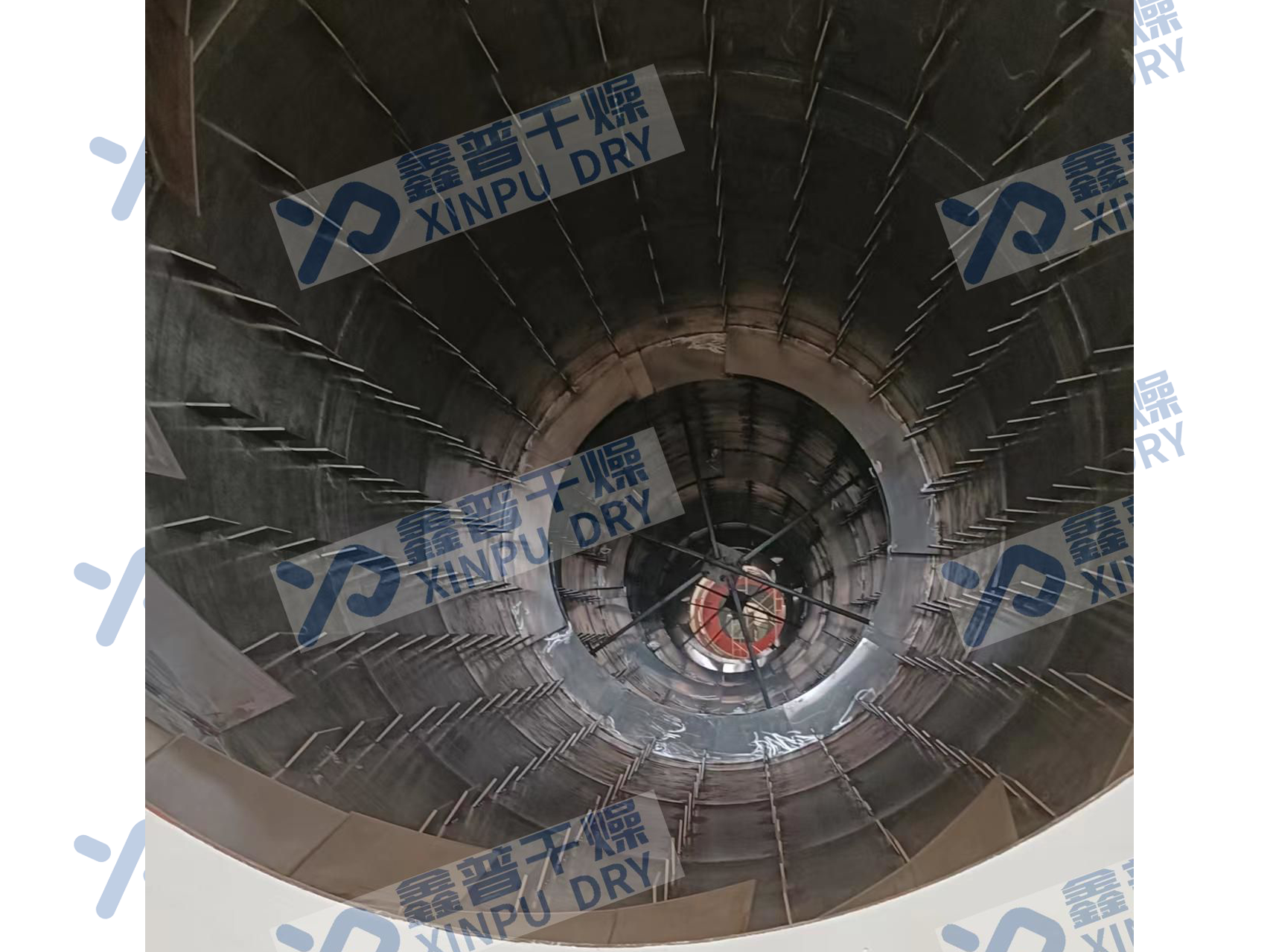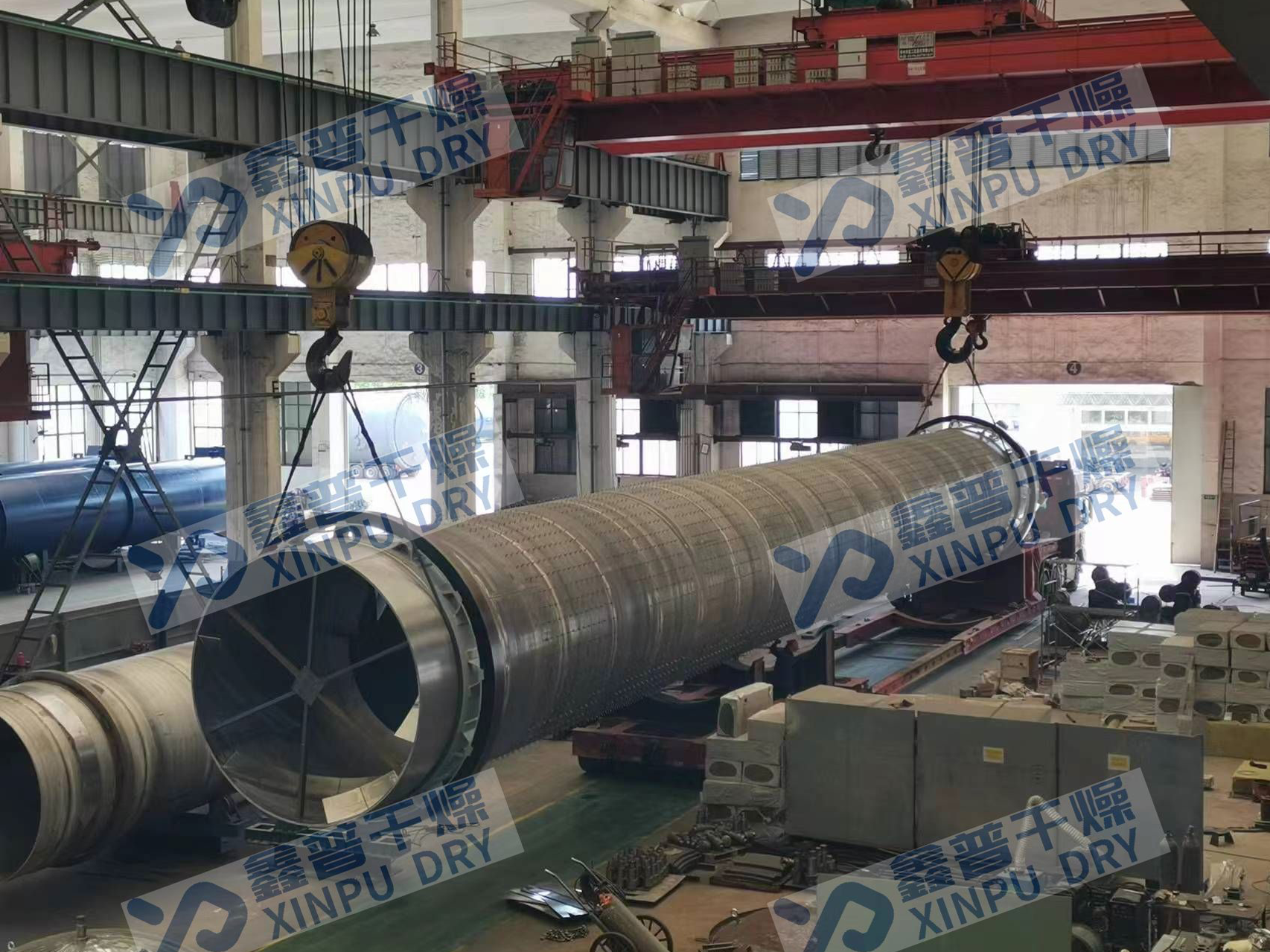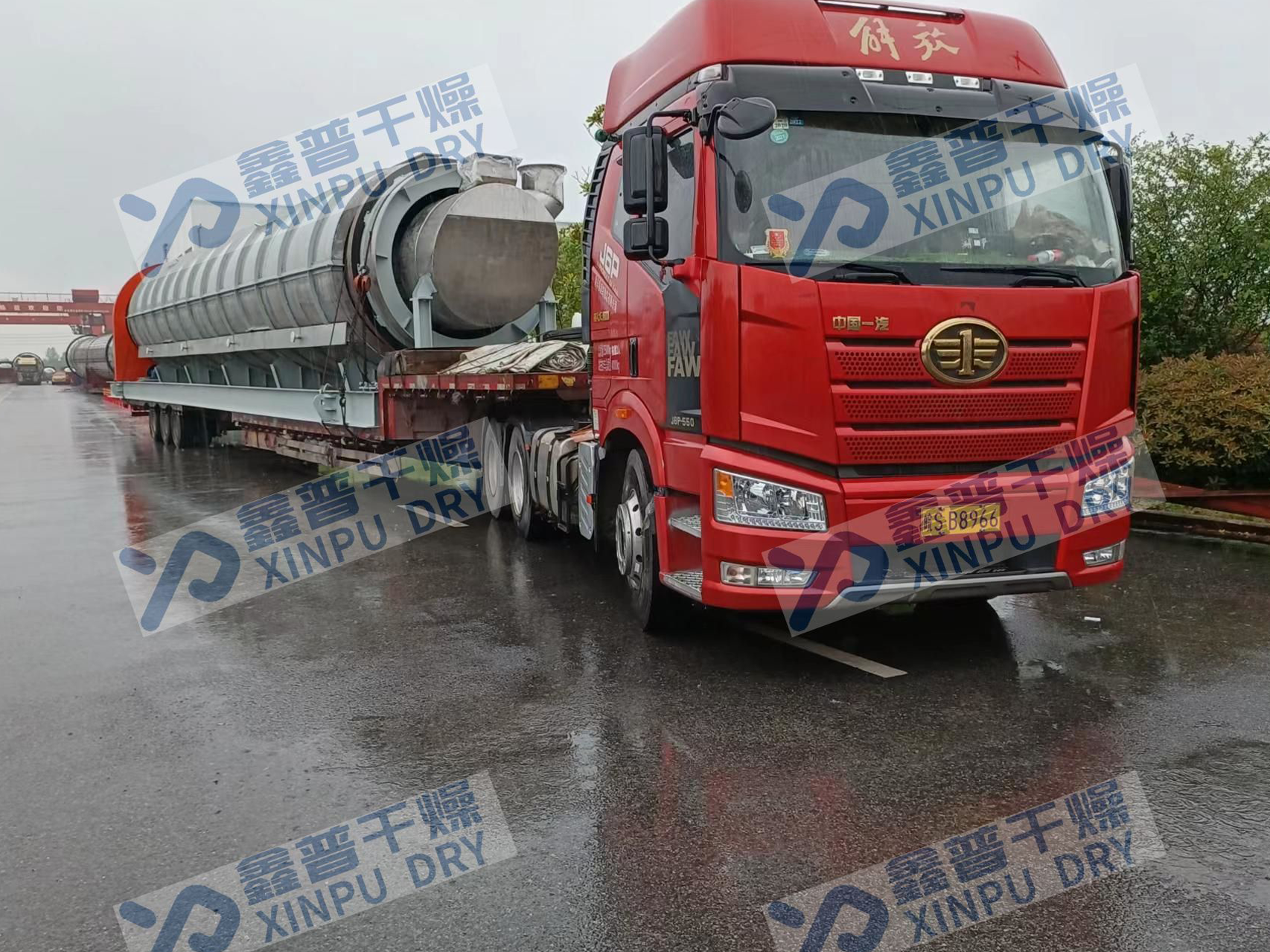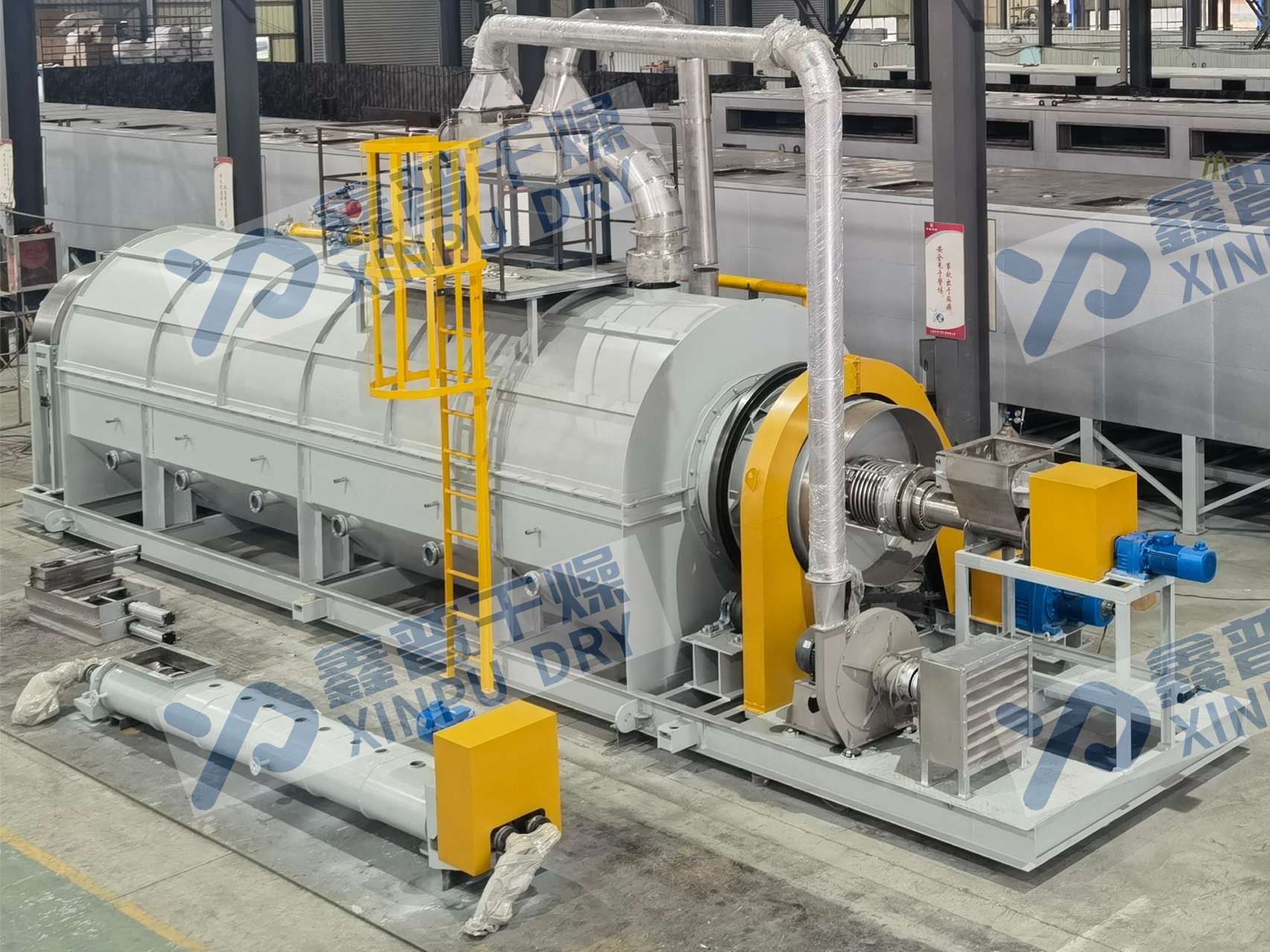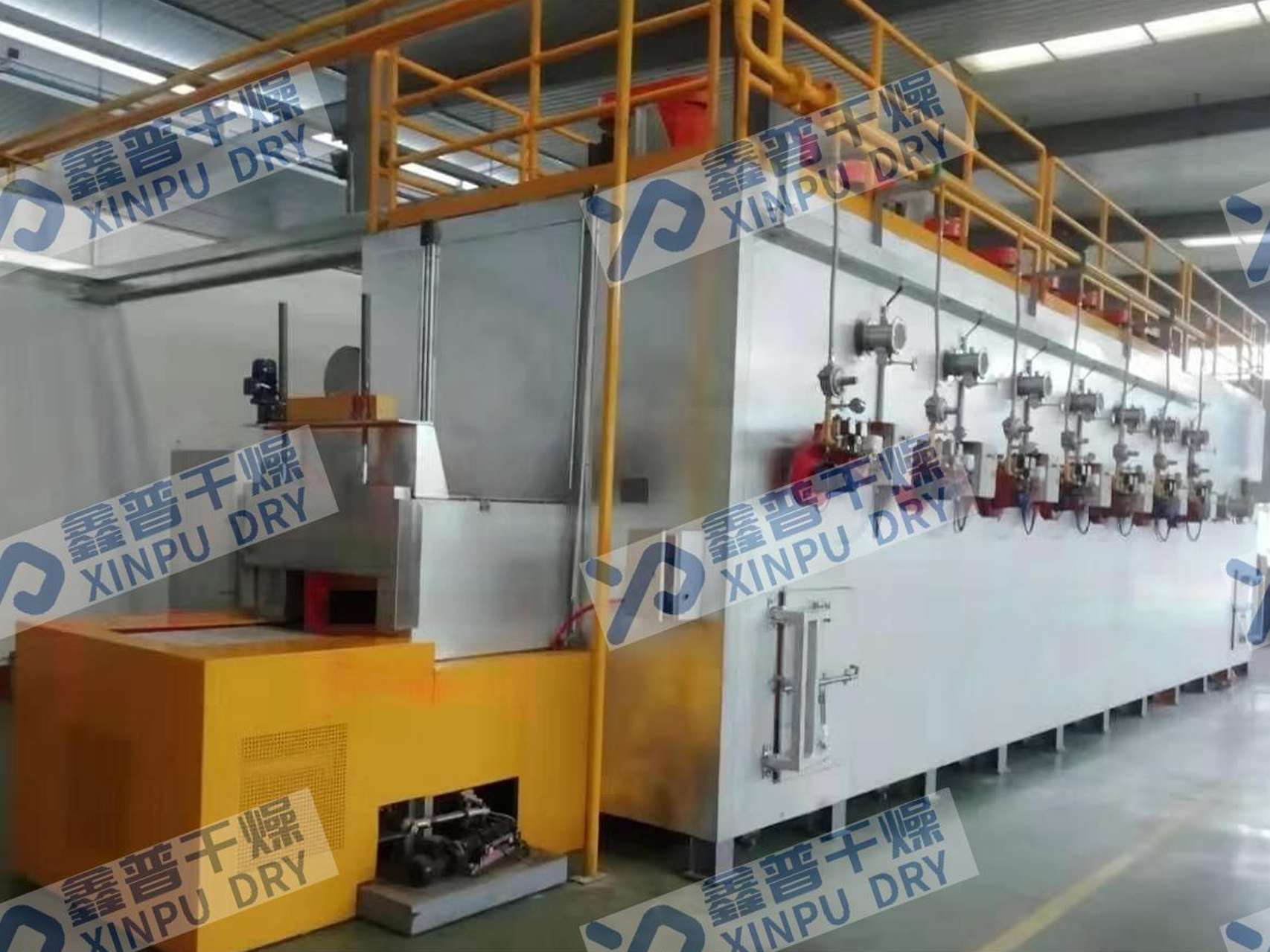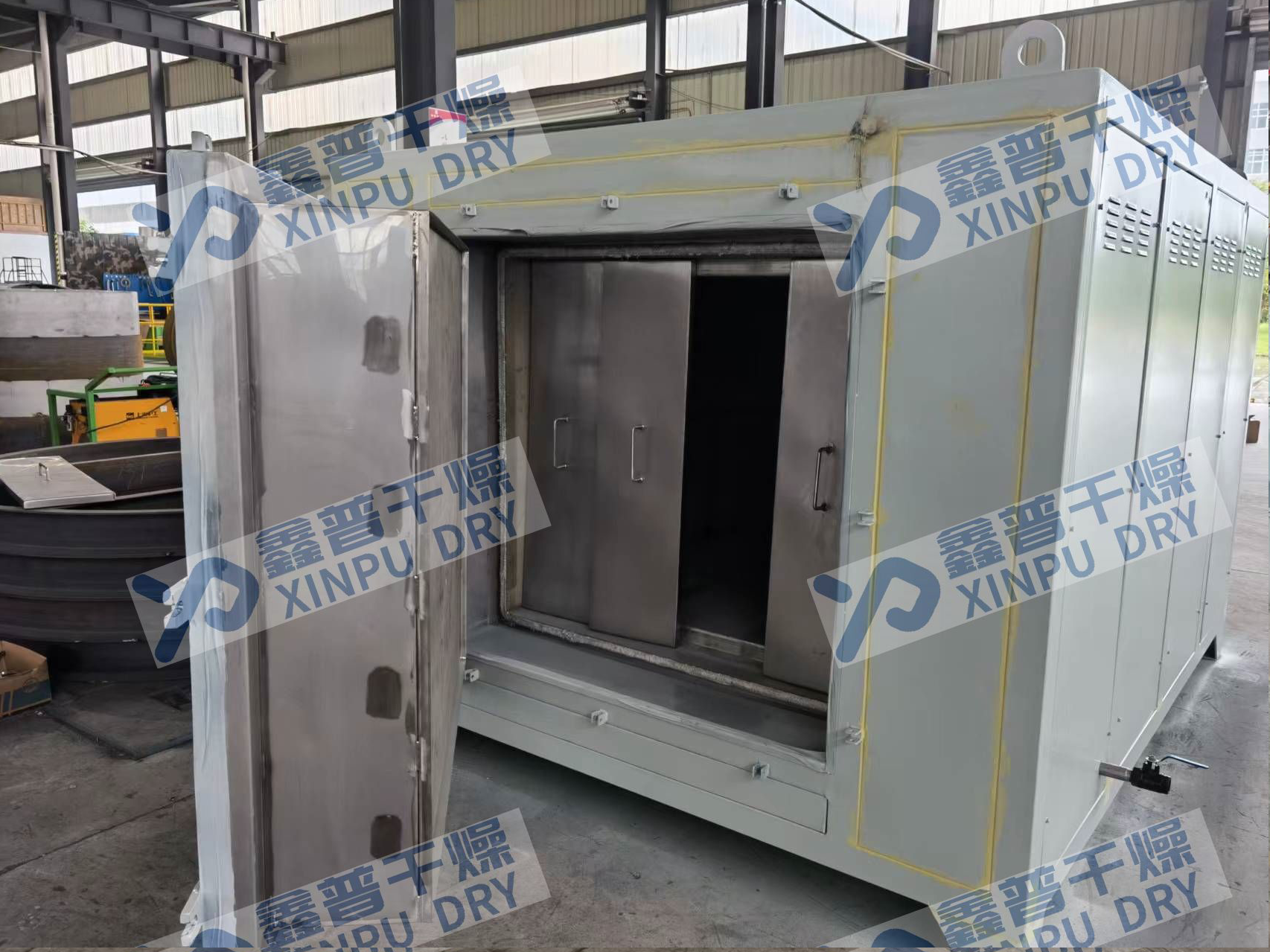Principle of operation
Rotary roaster is a kind of equipment for high-temperature heating treatment of powdery or granular materials.
Rotary roaster generally consists of furnace barrel, heating system, heat preservation system and control system. Before normal operation, the oven must be baked first. When the furnace temperature rises to the technological requirements, the materials to be roasted are sent into the furnace barrel by the spiral or chute and the guide plate of the furnace head feed box. The heating system adopts electric heating radiation or combustion chamber subsection control, and the working temperature of each area of the furnace is maintained by adjusting the power of the electric heating element or the flame size of the burner. The inclined furnace drum rotates at a slow speed, and the material moves forward while roasting, and finally enters the next process by the furnace tail discharging device. The residence time of materials in the furnace drum is designed and controlled by adjusting the inclination angle, rotation speed and special internal components of the furnace drum.
Performance characteristics
Performance characteristics of electric heating roaster
★ Good sealing effect and high degree of automation.
★ Automatic control and sectional setting of roasting temperature.
★ Heating system is safe and reliable.
★ The surface temperature rise of the insulation furnace is lower than 50℃, and the heat loss is small.
★ The equipment has simple and compact structure, small volume and light weight.
★ High efficiency and energy saving
★ Low operating intensity, simple maintenance and good operating environment.
★ Compared with the auxiliary equipment of other energy roasting furnaces, it is simple and easy to maintain.
★ Operating temperature is 400℃ ~ 1000℃
Performance characteristics of gas-fired roaster
★ Good sealing effect, reducing material loss and heat loss.
★ Full combustion of gas and high thermal efficiency.
★ The temperature is controlled automatically and by sections.
★ With accidental power failure protection system.
★ Good thermal insulation performance, reducing heat loss.
★ The combustion control system is safe and reliable
★ The equipment is compact in structure, small in size and light in weight, and the furnace body can be directly assembled on site.
★ Compared with solid and liquid combustion, it has less pollution to the environment.
★ Operating temperature is 400℃ ~ 900℃
Applied range
It is mainly used in the process of activation, oxidation, reduction, pyrolysis, crystal transformation, halogenation and sulfation of materials, and is widely used in the roasting of special materials (such as iron phosphate, special catalyst, special molecular sieve, kaolin, mineral powder, special adsorbent, inorganic salt, etc.) in new energy, petrochemical industry, inorganic chemical industry, metallurgy, construction and other industries. Main application examples: oil refining catalysts, zeolite molecular sieves, activated carbon adsorbents, magnetic materials, sulfide minerals, manganese ores, soda ash, aluminum hydroxide, refractories, silicates, ceramics and other materials.
Technical specifications
Specifications mm (Nominal diameter × furnace barrel length) | Rotation speed r/min | Type |
DN150~300×5000 | 0.5-5.0 | Electrothermal rotary cylinder |
DN400~500×6000 | 0.5-4.5 | Electrothermal rotary cylinder |
| DN600~800×10000 | 0.5-4.0 | Electrothermal/gas-fired rotary cylinder |
DN900~1000×16000 | 0.5-2.5 | Electrothermal/gas-fired rotary cylinder |
DN1100~1300×25000 | 0.5-2.0 | Electrothermal/gas-fired rotary cylinder |
DN1400~1500×25000 | 0.5-2.0 | Electrothermal/gas-fired rotary cylinder |
DN1600~1800×25000 | 0.5-2.0 | Electrothermal/gas-fired rotary cylinder |
DN2000~2300×24000 | 0.5-2.0 | Electrothermal/gas-fired rotary cylinder |
| DN1500~2000,1m3~3m3 | 0.5-5.0 | Electrothermal biconical rotation |
Note: Because the roasting characteristics of different materials are quite different, the corresponding structural design should be made according to the different roasting process requirements of each material. Therefore, the data in the above table are only for selection reference.


